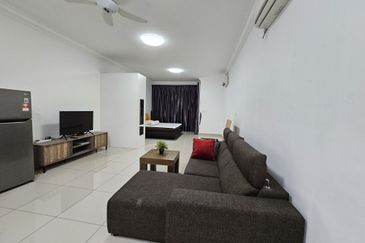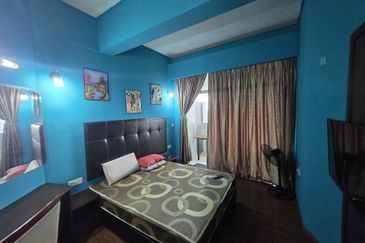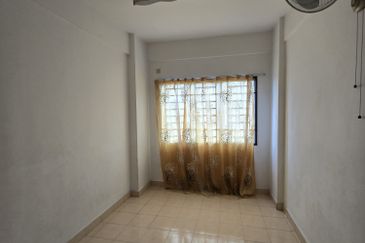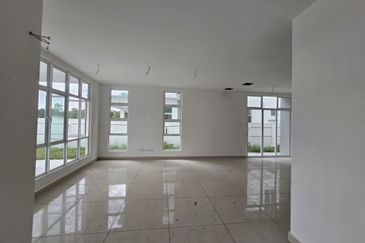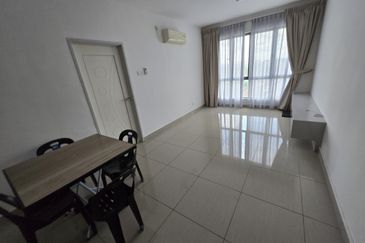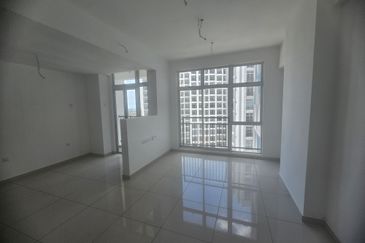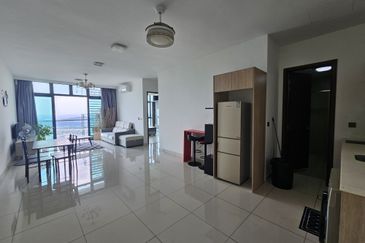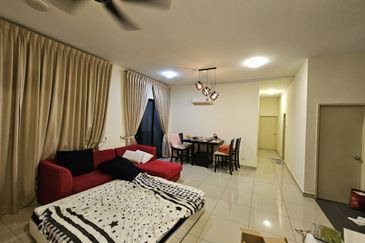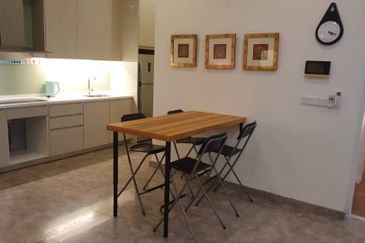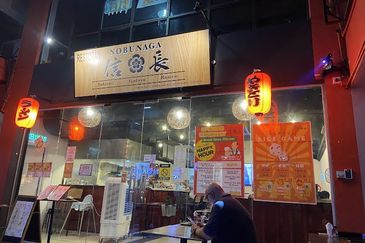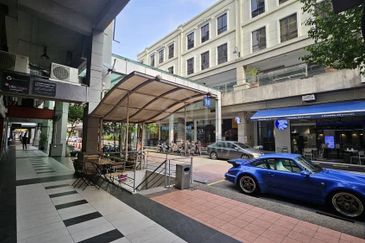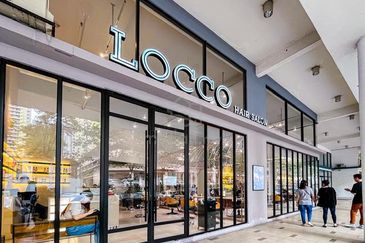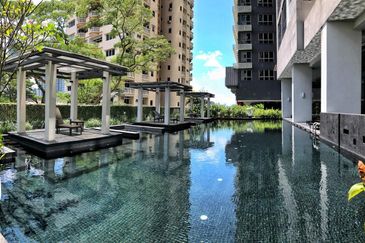
KUALA LUMPUR (Oct 26): Of the RM6.636 billion allegedly misused by Datuk Seri Najib Razak and Tan Sri Mohd Irwan Serigar Abdullah, RM4.781 billion — across four charges — were used to repay IPIC (see chart).
It is understood it was used to pay US$1.2 billion (RM4.99 billion) owed by 1MDB to the Abu Dhabi sovereign wealth fund between 2015 and 2017.
Another two charges relate to RM1.855 billion which was used to pay obligations in relation to the East Coast Rail Link (ECRL) project, as well as two gas pipeline projects in Peninsular Malaysia and Sabah.

East Coast Rail Link
The ECRL project was awarded by Malaysian Rail Link Sdn Bhd (MRL) to China Communication Construction Co (CCCC), and ground-breaking works were officiated in August 2017.
Najib, then prime minister, announced that the ECRL project would have a price tag of RM55 billion.
In July, Finance Minister Lim Guan Eng revealed ECRL’s overall development costs would hit RM81 billion when including all phases of development as well as financing costs.
Guan Eng also clarified that MRL has paid CCCC some RM19.68 billion — RM10.02 billion of advanced payment bond and RM9.67 billion for works completed as at Feb 15, 2018.
The project was halted by the Ministry of Finance (MoF) on July 4 when it was 14% completed. Guan Eng said on Oct 23 that negotiations are still ongoing between MRL and CCCC to reduce the overall costs of the project.
On Oct 24, Najib told the Dewan Rakyat that the project is fully funded via a 20-year soft loan provided by Export-Import Bank of China (Exim Bank) with interest rate of “well below” 5.5% coupled with a seven-year moratorium.
While Guan Eng had stated that the government could reclaim the RM10.02 billion performance bond if the ECRL project is terminated, both MoF and CCCC were mum when asked by The Edge Financial Daily over possible compensation sought by CCCC if MoF was the one to call off the project.
Sabah and Peninsular Malaysia Pipeline Projects
MoF, via a unit called Suria Strategic Energy Resources Sdn Bhd (SSER), awarded two pipeline projects worth a combined RM9.41 billion to China Petroleum Pipeline Bureau (CPPB) on Nov 1, 2016.
According to a statement by Guan Eng on June 5, the first project comprises the 600km Melaka-Kedah Multi-Product Pipeline (MPP) costing about RM5.35 billion.
The second is the RM4.06 billion 662km Trans-Sabah Gas Pipeline (TSGP) projects linking Kimanis, Sandakan and Tawau.
Both MPP and TGSP have been described by analysts as being “way too expensive”.
SSER secured 85% funding for the projects from Exim bank in March 2017. The remaining 15% were to be raised via sukuk issuance, added the MoF statement.
Works then commenced on April 2017 for a scheduled three-year period.
However, up until March 31, only 13% of the project was completed despite RM8.25 billion or 87.7% of the total payout had been given to CPPB on a timeline milestone basis under the contract terms.
This does not include two other consultancy agreements and a maintenance agreement worth RM1 billion awarded to Chinese companies for the same projects above, according to the statement by Lim.
The projects were suspended in July, and later terminated in September.
SSER was chaired by Irwan until his resignation on May 23. Lim, in the June 5 statement, also revealed that the people behind SSER were also involved in the troubled SRC International Sdn Bhd, a former unit of 1MDB.
1MDB’s US$1.2b debt to IPIC
IPIC was a co-guarantor of two 1MDB bonds totalling US$3.5 billion, which were arranged by Goldman Sachs.
Between 2012 and 2014, 1MDB transferred US$3.15 billion to an entity named Aabar Investments PJS Ltd (BVI) (Aabar BVI) in relation to the bonds, under the assumption it is a unit of IPIC.
Separately, IPIC lent 1MDB US$1.2 billion in May 2015, so the latter could pay its debts — including interests over the two bonds which IPIC co-guaranteed.
IPIC later revealed that Aabar BVI is not its subsidiary, although it shares part of the name with the original IPIC unit Aabar Investments PJS, and lists two of the IPIC unit’s directors as its shareholders.
The two funds then got into a dispute over the missing US$3.5 billion paid to Aabar BVI, before they worked out on the settlement agreement in 2017.
Under the 2017 agreement, 1MDB repaid IPIC the US$1.2 billion it borrowed in 2015, and released IPIC from being the co-guarantor of the two bonds.
At the time, 1MDB announced it had settled the payment with proceeds raised from asset sales, without elaborating.
On Oct 24, Najib told the Dewan Rakyat that under the settlement agreement in 2017, IPIC had agreed to repay 1MDB US$3.5 billion owed to the latter, and that he wanted to work on repatriating the funds after GE14.
Najib described the 1MDB-IPIC deals as “swapping assets with debts” and said that 1MDB will obtain US$6 billion in total from the series of agreements, without elaborating. He also urged the present government to disclose the settlement agreement to the public.
This article first appeared in The Edge Financial Daily, on Oct 26, 2018.
Click here for more property stories.
TOP PICKS BY EDGEPROP
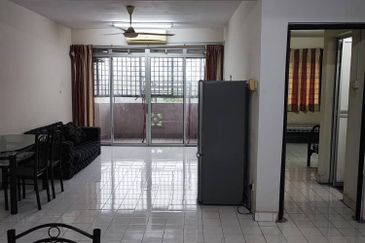
Apartment Tanjung Puteri Resort
Pasir Gudang, Johor
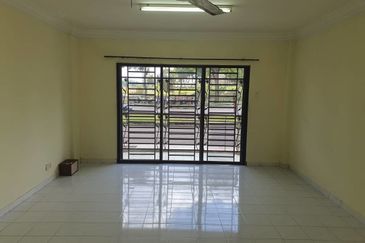
Seri Mutiara Apartment, Bandar Baru Seri Alam
Masai, Johor

Apartment Tanjung Puteri Resort
Pasir Gudang, Johor

Seri Mutiara Apartment, Bandar Baru Seri Alam
Masai, Johor



